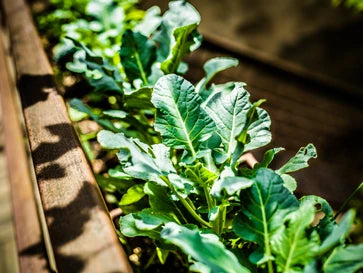At P.S. & Co., we are proud to recognize Earth days, every day. Our team works to contribute to the environment via organic plant-based food, compostable packaging, and sustainable practices. Earth Day is a way that individuals, communities, and businesses can help to do their part for Mother Nature and the day acts as a gentle reminder that we can always be working on reducing our carbon footprint through greener avenues.
Our first Earth Day was in 1970. Long concerned about the way our environment is treated on a daily basis, Senator Gaylord Nelson from Wisconsin wanted to create something that provided public consciousness regarding the air and water pollution our earth was constantly facing. He was inspired by the student anti-war movement and along with witnessing disasters such as a devastating oil spill in Santa Barbara in 1969, the senator wanted to take this energy and put it towards an educational forum on college campuses. Persuading congressman Pete McCloskey to serve as his co-chair, the eco-conscience duo asked activist Dennis Hayes to organize the forums to be spread into the national media. The day which was chosen for this event landed on April 22nd - a way to engage students as it was between Spring Break and finals. Earth Day 1970 achieved political alignment, a rare occurrence as supporters included both Democrats and Republicans, both urban and rural dwellers no matter what socioeconomic status they may be in line with.
How Does P.S. & Co. Contribute to Earth Day?
Only Offering Organic, Plant-Based Options
-
Animal agriculture in the meat and dairy industry generates methane and carbon dioxide which help to contribute to climate change. Responsible for 18% of greenhouse gas emissions, this accounts for more than all transportation combined.
-
Livestock and byproducts account for 32,000 million tons of carbon dioxide per year which is 51% of greenhouse gas emissions worldwide.
-
Agriculture is responsible for 80-90% of the country’s water consumption.
-
Meat, dairy, and eggs have a high water footprint. A single pound of beef takes about 1,800 gallons of water to produce. Approximately 1,000 gallons of water are required to produce 1 gallon of milk.
-
For every one pound of fish caught, approximately 5 pounds of marine species are caught and discarded as by-kill.
These are just a select few facts about the effects meat and dairy have on our environment. P.S. & Co. is proud to offer the healthiest, organic, gluten-free, and plant-based options that have a zero to low impact on our land, air, and furry friends.



We Source Seasonal Items
Our team focuses on seasonality when it comes to sourcing fresh produce. Your food footprint can grow exponentially when food is shipped from around the country or worse, around the world. You will regularly see our founder, Andrea at local markets such as Mom’s Organic Market when our kitchen is out of something. Depending on the specific item, our produce vendors are local and the time spent from harvest to plating is a very small window. By sourcing locally grown produce, you are helping to cut down food mileage impact as well as enjoying the better tasting, fresher fruits, and vegetables. Food mileage impact can contribute to pollution, greenhouse emissions, and climate change. The product itself tends to be sprayed with chemicals to extend the shelf life as transportation is not a quick process.



We Practice Sustainability
At our shop, we are always focused on sustainability, whether that is through our food choices or our packaging. We offer reusable glass juice bottles, we can fill your thermos with your desired beverage to cut down on packaging, and we offer glass straws. We repurpose our ingredients as well. Our team creates recipes such as the Organic Mineral Vegetable Broth that is made with vegetable cuttings to help keep waste down. We also save our ginger juice pulp to make ground ginger, apple pulp to make apple sauce for our cakes, spinach pulp to add to our Green Smoothie, and the list goes on!
https://www.earthday.org/history/
https://www.fao.org/3/a0701e/a0701e00.htm
https://awellfedworld.org/wp-content/uploads/Livestock-Climate-Change-Anhang-Goodland.pdf
https://www.ers.usda.gov/topics/farm-practices-management/irrigation-water-use/background.aspx
https://foodprint.org/issues/the-water-footprint-of-food/
https://www.molloy.edu/Documents/cowspiracy_fact_check_flier.pdf
https://www.sustainweb.org/publications/the_food_miles_report/





Leave a comment
This site is protected by hCaptcha and the hCaptcha Privacy Policy and Terms of Service apply.